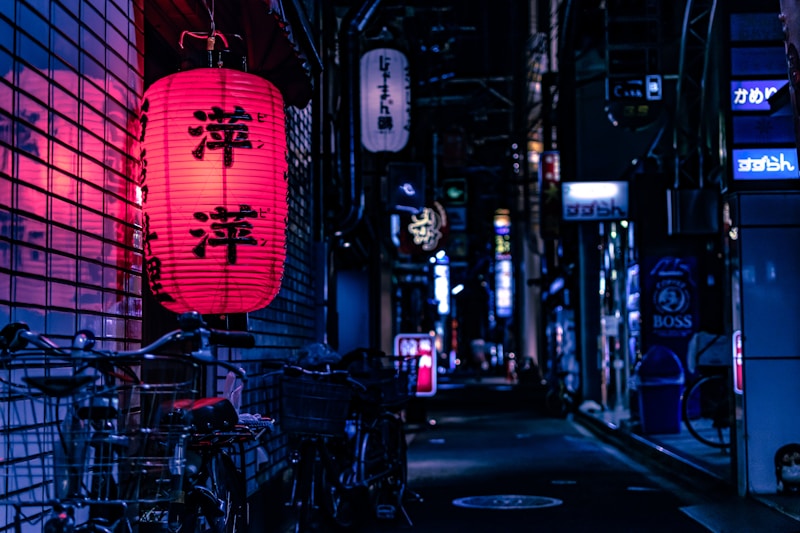Among the mountain of leaked Game Freak documents flooding the internet this week, one particularly fascinating revelation shows what might have been: an original pitch for the second Pokémon Legends game set in Edo period Johto to celebrate the 25th anniversary of Pokémon Gold and Silver. The concept would have transported players to feudal Japan’s historic Edo era (1603-1868), reimagining the beloved Johto region with traditional architecture, samurai culture, and classical Japanese aesthetics before being rejected in favor of Pokémon Legends: Z-A’s focus on Lumiose City and the Kalos region.
The Edo Period Johto Concept
The leaked pitch document reveals Game Freak considered multiple directions for following up Pokémon Legends: Arceus before settling on the Kalos-focused Z-A. The Edo period Johto concept aligned perfectly with timing – Gold and Silver originally launched in Japan on November 21, 1999, meaning their 25th anniversary fell in November 2024. A Legends game celebrating that milestone would have allowed long-time fans to return to the Johto region that introduced them to concepts like breeding, held items, and the day/night cycle.
The Edo period setting promised rich thematic potential. This era of Japanese history featured strict social hierarchy, isolationist policies, vibrant urban culture in cities like Edo (modern Tokyo), and the romanticized world of samurai and ninja. Translating these elements into Pokémon could have resulted in period-appropriate clothing, traditional Japanese folklore creatures as regional forms, and storylines exploring themes of honor, duty, and societal change during Japan’s transformation from feudal to modern society.
Why Johto Made Sense
| Factor | How It Aligned With Legends Formula |
|---|---|
| Beloved Region | Johto holds special nostalgia as Gen 2 introduced major quality-of-life improvements and is closely tied to Kanto |
| Japanese Setting | Johto is explicitly based on Japan’s Kansai region, making Edo period themes culturally appropriate |
| 25th Anniversary | November 2024 marked Gold/Silver’s quarter-century milestone, perfect for a celebratory release |
| Legendary Potential | Ho-Oh, Lugia, and the Legendary Beasts offered compelling narrative hooks for an origin story |
| Minimal Overlap | HeartGold/SoulSilver remade Johto in 2009, but a historical Legends approach would feel fresh |

Why Game Freak Chose Kalos Instead
Despite the compelling Edo period Johto concept, Game Freak ultimately greenlit Pokémon Legends: Z-A set in X and Y’s Lumiose City during its reconstruction period. Several factors likely influenced this decision. First, Legends: Arceus already explored feudal Japan through the Hisui region (ancient Sinnoh), and returning to similar thematic territory risked feeling repetitive. Second, Kalos received less post-launch support compared to other regions – X and Y never got a third version or sequel, leaving fans wanting more from that generation.
Third, the Mega Evolution mechanic introduced in X and Y has remained dormant since Sun and Moon removed it in favor of Z-Moves, then Dynamax, then Terastallization. Bringing back Mega Evolution as Z-A’s central feature addresses long-standing fan requests to restore the beloved transformation system. Finally, focusing the entire game within a single city allowed Game Freak to pursue unprecedented urban density and verticality impossible in traditional Pokémon regions spanning multiple towns and routes.
Other Rejected Concepts in the Leaks
The Edo period Johto pitch wasn’t the only alternate Legends concept revealed in the leaked documents. According to various sources analyzing the data dump, Game Freak explored multiple directions before committing to Z-A. One particularly intriguing mention involves a third Pokémon Legends title potentially set in the Galar region (Sword and Shield’s setting based on Great Britain), though details remain scarce and the timeline for such a project uncertain.
The roadmap extending to 2030 also reportedly mentions plans for additional Legends titles beyond Z-A, suggesting Game Freak views the sub-series as a permanent fixture rather than a limited experiment. This makes sense given Legends: Arceus’ critical and commercial success, proving that fans embrace alternative approaches to Pokémon gameplay that deviate from the traditional eight-gym formula.
What Edo Period Johto Could Have Offered
Imagining the rejected concept reveals tantalizing possibilities. Players might have witnessed the construction of Ecruteak City’s Burned Tower before the mysterious fire, or explored an ancient Goldenrod City before modernization. The legendary Pokémon backstory could have delved into the Brass Tower and Tin Tower’s original purposes, Ho-Oh’s relationship with the three Legendary Beasts before their resurrection, and Lugia’s retreat to the Whirl Islands.
Regional forms inspired by Edo period culture might have included samurai-themed evolutions, ninja variants, and creatures based on yokai folklore that informed Johto’s original designs. The gameplay could have incorporated period-appropriate technology limitations – no modern Poké Balls, forcing creative capture mechanics similar to Legends: Arceus but themed around traditional Japanese craftsmanship. Imagine using hand-woven baskets instead of mechanical balls, or partnering with Pokémon through feudal-era bonding rituals.
Fan Reactions to the Revelation
Pokemon fans learning about the rejected Edo period Johto concept expressed mixed feelings ranging from disappointment that it never happened to understanding why Game Freak chose Z-A instead. Many Johto enthusiasts voiced regret that their favorite region won’t receive the Legends treatment, especially given how beloved Gold and Silver remain despite launching over 25 years ago. The fact that HeartGold and SoulSilver already provided definitive remakes in 2009 offers some consolation, though the Legends approach would have offered something completely different.
Others acknowledged that Legends: Arceus already explored feudal Japanese themes thoroughly, making a second historical Japan game potentially redundant. The decision to give Kalos another chance while bringing back Mega Evolution seems reasonable from both creative and commercial perspectives, even if some fans would have preferred the Johto alternative.
What This Means for Future Legends Games
The revelation that multiple concepts competed for the second Legends slot confirms that Game Freak actively evaluates different regions, time periods, and thematic approaches when planning these titles. The roadmap suggesting Legends games continuing past Z-A means rejected concepts like Edo period Johto could resurface in future planning if circumstances align. Perhaps when Gold and Silver’s 30th anniversary approaches in 2029, the pitch might be revisited with fresh perspective and different development priorities.
The leaked information about Pokémon Legends 3 potentially visiting the Galar region demonstrates that newer generations remain candidates alongside nostalgic favorites. This suggests the Legends series will bounce between celebrating classic regions with historical settings and exploring recent additions from different angles, maintaining variety rather than following a predictable pattern of working backwards chronologically through generations.
Frequently Asked Questions
What was the Edo period Johto pitch?
Leaked Game Freak documents reveal an original concept for the second Pokémon Legends game set in Edo period Johto (feudal Japan, 1603-1868), celebrating the 25th anniversary of Pokémon Gold and Silver before being rejected in favor of Legends: Z-A.
Why did Game Freak choose Kalos over Johto?
Likely reasons include Legends: Arceus already exploring feudal Japan, Kalos receiving less post-launch content than other regions, fan demand for Mega Evolution’s return, and the creative opportunity to build an entire game within Lumiose City’s urban environment.
Could we still get a Johto Legends game?
Possibly. The leaked roadmap suggests Legends titles will continue past Z-A, and rejected concepts can be revisited with different timing and context. Gold/Silver’s 30th anniversary in 2029 might provide another opportunity for the concept.
What other Legends games are planned?
Leaked documents mention a potential Legends title set in Galar region (Sword/Shield’s Great Britain-inspired setting), though details remain scarce and timelines uncertain. The roadmap extending to 2030 suggests multiple future Legends releases.
When were Pokémon Gold and Silver released?
Gold and Silver launched in Japan on November 21, 1999, making their 25th anniversary fall in November 2024. The Edo period Johto pitch aligned with celebrating this milestone before being rejected.
How would Edo period Johto differ from Legends: Arceus?
While both explore historical Japan, Arceus focused on Hokkaido-inspired Hisui with Meiji-era influences, while Edo Johto would have showcased Kansai region during the isolationist Edo period with distinct cultural elements like samurai society and urban Edo culture.
What makes the Legends series different from main games?
Legends titles emphasize action-oriented gameplay, historical settings that reimagine familiar regions, different capture mechanics, and narratives exploring origins of legendary Pokémon and region lore rather than following the traditional eight-gym formula.
The Road Not Taken
The Edo period Johto concept represents a fascinating glimpse into Game Freak’s creative process and the difficult decisions studios face when choosing between multiple compelling directions. While fans may never experience feudal Johto with samurai trainers and yokai-inspired regional forms, the revelation that such a concept existed validates long-standing hopes for a Johto Legends game. Whether future anniversaries, fan demand, or shifting creative priorities eventually resurrect this rejected pitch remains to be seen, but the leaked documents confirm that Game Freak seriously considered it before circumstances led them down the Kalos path instead.

